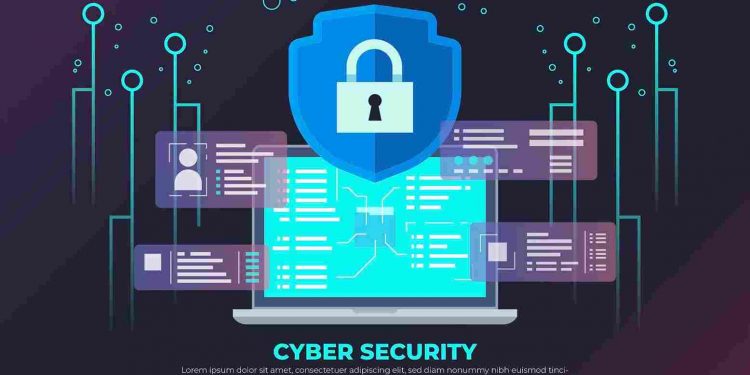You’ve built your business from the ground up, and its security is a top priority. Whether you’re a small boutique or a bustling office space, safeguarding your assets, employees, and customers is non-negotiable. But as you delve into commercial security systems, questions arise, with one looming large: How much will it cost? In this comprehensive guide, we’ll navigate the landscape of setting up a commercial security system, demystify the costs involved from security companies, and empower you to make informed decisions that protect what matters most.
Understanding the Essentials of Commercial Security Systems
A commercial security system is more than just a set of cameras and alarms. It’s a comprehensive network of components designed to deter, detect, and respond to potential security threats. The elements work together to create a robust security infrastructure, from surveillance cameras and access control systems to intrusion alarms and monitoring services.
#1 – Assessing Your Needs: The Foundation of Cost Estimation
The cost of setting up a commercial security system is influenced by various factors rooted in your unique needs. Consider the following:
- Size of Your Space: A larger facility may require more cameras, sensors, and access control points, impacting the overall cost.
- Type of Business: Different industries have varying security requirements. A retail store may need comprehensive video surveillance, while an office space might prioritize access control.
- Security Goals: Do you want to prevent theft, monitor employee behavior, or ensure compliance with safety regulations? Your goals will shape the components you need.
- Integration: Are you looking for a standalone security system or an integrated solution that includes access control, video surveillance, and alarms?
#2 – Elements of a Commercial Security System: Understanding Costs
Each component of a commercial security system comes with its associated costs. Let’s break down some of the key elements:
- Surveillance Cameras: The backbone of your system, surveillance cameras come in various types, including analog, IP, and high-definition. Costs depend on the number of cameras, their resolution, and features such as pan-tilt-zoom capabilities.
- Access Control Systems: These systems regulate who can enter specific areas of your premises. Costs vary based on the type of access control (card, biometric, keypad), the number of entry points, and integration capabilities.
- Intrusion Alarms: These alarms detect unauthorized entry and trigger alerts. The cost depends on the number of sensors, their type (door/window, motion), and whether they’re wired or wireless.
- Monitoring Services: Many security companies offer monitoring services, where professionals oversee your security system 24/7 and respond to alarms. Costs vary based on the level of monitoring, including remote and on-site options.
- Integration and Automation: Often, integrated systems that allow you to control various components through a single interface come with higher upfront costs but can provide long-term efficiency.
#3 – Factors Impacting Costs
While assessing your needs and choosing components form the foundation of your cost estimate, several other factors can influence the final number:
- Installation: Installation costs can vary based on the complexity of your space, the number of devices, and whether any structural modifications are required.
- Wiring: The type and length of wiring needed for your system can impact costs. Wireless systems may have lower installation costs but require more maintenance over time.
- Equipment Quality: The quality and brand of equipment you choose will influence costs. While opting for the lowest price is tempting, investing in reliable, high-quality equipment can save you money in the long run.
#4 – Professional Consultation: The Importance of Security Companies
Security companies are pivotal in assessing your needs, recommending suitable solutions, and providing accurate cost estimates. Their expertise ensures your system is tailored to your business’s unique requirements and industry standards. Consulting with security professionals provides insights into the most effective and cost-efficient options for your needs.
Planning Your Budget: What to Expect
Now that we’ve covered the various elements and factors influencing the cost of a commercial security system let’s delve into what you can expect in terms of budget:
- Basic Systems: For a small business with a limited budget, a basic security system with a few cameras and intrusion alarms can start at around $1,000 to $2,000. These include installation, equipment, and setup.
- Mid-Range Systems: A mid-range system could range from $5,000 to $15,000 for medium-sized businesses or those with more extensive security needs. These might include multiple cameras, access control points, and integration features.
- Comprehensive Systems: Large businesses or facilities with advanced security requirements can expect to invest anywhere from $20,000 to $50,000 or more for a comprehensive security system. It might involve high-resolution cameras, extensive access control systems, and advanced monitoring services.
- Ongoing Costs: Remember that the initial setup cost is just part of the equation. Ongoing costs like monitoring fees, maintenance, and potential upgrades should be factored into your budget.
Setting up a commercial security system is not just an expense; it’s an investment in the safety and well-being of your business. By understanding the elements, factors, and costs, you can make informed decisions aligning with your security goals and budget. Collaborating with reputable security companies ensures your system is tailored to your needs, helping you create a safe and secure environment for your employees, customers, and assets. So, as you embark on this journey, remember that the cost of safeguarding your business is a small price to pay for peace of mind and protection.
Follow Techdee for more!





